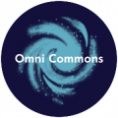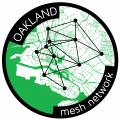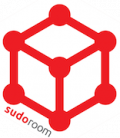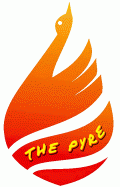|
|||
|
The music I describe in this post is best experienced as an accompaniment to heightened sensory awareness. I recommend dark chocolate, red wine, and etceterta; Clicking on the album names will lead you to the album’s page at AllMusic.com. Oh, and if the word “experimental,” or, worse yet, “glitch” turns you off, you can stop reading now.
Released in 2007, Whistleblower is the latest brainchild of Finnish producer Sasu Ripatti. Clicks and cuts never sounded so spooky yet somehow soothing. This is my current favorite album to play while writing the nights away…
My favorite track on the album is easily ‘Pwntendo,’ which as you might imagine sounds like Yoshi got into the Sugar Frosted Crack. A little nutty, for sure. I like my music extra-crunchy. *bleep* *whir* *skitter* One up! In 1991, Hakim Bey published a work entitled TAZ: Temporary Autonomous Zone, Ontological Anarchy, and Poetic Terrorism. The TAZ is essentially that liminal space that exists on the edges of things, the moments that allow for true creativity that occur outside of the hierarchical structures of society and information. True freedom and empowerment is found only in these moments. Though we often conceive of the Internet as a liminal space in which structural hierarchies are dissembled, Bey differentiates between “the Net” as the hierarchical structures of information flow, and the “counter-Net”, which are those clandestine and rebellious practices that subvert this hierarchy (think music downloading…). The “Web”, then, enables open and horizontal patterns of information flow. Together, the three comprise the system that make up the Internet. Some great questions are posed- I’ve excerpted my favorite bit below: “Also I am not impressed by the sort of information and services proffered by contemporary “radical” networks. Somewhere–one is told–there exists an “information economy.” Maybe so; but the info being traded over the “alternative” BBSs seems to consist entirely of chitchat and techie-talk. Is this an economy? or merely a pastime for enthusiasts? OK, PCs have created yet another “print revolution”–OK, marginal webworks are evolving–OK, I can now carry on six phone conversations at once. But what difference has this made in my ordinary life? Frankly, I already had plenty of data to enrich my perceptions, what with books, movies, TV, theater, telephones, the U.S. Postal Service, altered states of consciousness, and so on. Do I really need a PC in order to obtain yet more such data? You offer me secret information? Well…perhaps I’m tempted–but still I demand marvelous secrets, not just unlisted telephone numbers or the trivia of cops and politicians. Most of all I want computers to provide me with information linked to real goods–“the good things in life,” as the IWW Preamble puts it. And here, since I’m accusing the hackers and BBSers of irritating intellectual vagueness, I must myself descend from the baroque clouds of Theory & Critique and explain what I mean by “real goods.” Let’s say that for both political and personal reasons I desire good food, better than I can obtain from Capitalism– unpolluted food still blessed with strong and natural flavors. To complicate the game imagine that the food I crave is illegal–raw milk perhaps, or the exquisite Cuban fruit mamey, which cannot be imported fresh into the U.S. because its seed is hallucinogenic (or so I’m told). I am not a farmer. Let’s pretend I’m an importer of rare perfumes and aphrodisiacs, and sharpen the play by assuming most of my stock is also illegal. Or maybe I only want to trade word processing services for organic turnips, but refuse to report the transaction to the IRS (as required by law, believe it or not). Or maybe I want to meet other humans for consensual but illegal acts of mutual pleasure (this has actually been tried, but all the hard-sex BBSs have been busted–and what use is an underground with lousy security?). In short, assume that I’m fed up with mere information, the ghost in the machine. According to you, computers should already be quite capable of facilitating my desires for food, drugs, sex, tax evasion. So what’s the matter? Why isn’t it happening? The TAZ has occurred, is occurring, and will occur with or without the computer. But for the TAZ to reach its full potential it must become less a matter of spontaneous combustion and more a matter of “islands in the Net.” The Net, or rather the counter-Net, assumes the promise of an integral aspect of the TAZ, an addition that will multiply its potential, a “quantum jump” (odd how this expression has come to mean a big leap) in complexity and significance. The TAZ must now exist within a world of pure space, the world of the senses. Liminal, even evanescent, the TAZ must combine information and desire in order to fulfill its adventure (its “happening” Perhaps the Neo-Paleolithic School are correct when they assert that all forms of alienation and mediation must be destroyed or abandoned before our goals can be realized–or perhaps true anarchy will be realized only in Outer Space, as some futuro-libertarians assert. But the TAZ does not concern itself very much with “was” or “will be.” The TAZ is interested in results, successful raids on consensus reality, breakthroughs into more intense and more abundant life. If the computer cannot be used in this project, then the computer will have to be overcome. My intuition however suggests that the counter-Net is already coming into being, perhaps already exists–but I cannot prove it. I’ve based the theory of the TAZ in large part on this intuition. Of course the Web also involves non-computerized networks of exchange such as samizdat, the black market, etc.–but the full potential of non-hierarchic information networking logically leads to the computer as the tool par excellence. Now I’m waiting for the hackers to prove I’m right, that my intuition is valid. Where are my turnips?” The character of mass media has been shifting dramatically over the past century- from the one-directional consumption of television, to the dialogical (yet niche) nature of online bulletin boards, to the enormous multimedia production of today. As the tools of new media increase in accessibility and expand in ubiquity, we find ourselves in conversation with a public audience that is more or less evident. Knowing who one’s audience is can be a tricky process. Blogs, websites, and publicly-accessible online profiles entail invisible publics. The creation of Friend Lists and the implementation of privacy features restricts one’s audience and enhances awareness of it. Through the lens of the social graph, we can create categorical definitions of our audiences by labeling clusters of relations. (From the looks of it, it would appear that my social network revolves around the following sites: Wesleyan, Boston, NY, San Francisco, Washington D.C, and the Northwest US): There is something intrinsically satisfying in visual representation that text lacks. There are also few things more desirable than that which reflects oneself, however iconically. TouchGraph, the company behind this Facebook application, says on their website:
Just the name of the company- TouchGraph, beckons us outside of the textuality of the Internet (a quality that is becoming progressively less prominent), allowing us to grasp our wider place in the virtual world on a more intuitive level. Such data also allows us to understand exactly how limited our individual, direct scope actually is. I predict that the practice of mirroring real-life social networks will soon become secondary to the process of producing engaging media- which, as the Internet becomes increasingly searchable, will find its place amongst wider taste fabrics. These “taste fabrics” are constructed through “word of mouth” reconfigured to the modern sense- that is, hyperlinked. In turn we may find ourselves navigating visual representations of the taste fabrics we create through our Google searches, our social networks, and our own content.
the pure absurdity of this dissatisfaction- I have been thinking of online social networks as pertinent examples of a generational trend, marked by the increasing appropriation of the media and proliferation of contextualized interpretations by disparate individuals, connected through shared taste fabrics that are founded, by and large, on mass media. The rise of Web 2.0 signifies a shift toward user-generated content in the form of blogs, photo albums, videos, music, niche communities, message board dialogue, playful interaction, computer media, and creative displays of identity (“mashup”). The locale of the hearth (that which is safe, secure) has shifted, from the family home theater clustered around the television to a dynamic mirror of ourselves as relational wholes, albeit individually fragmented. We have begun to bridge the gap between producers and consumers of media- increasing interactivity allows for a two-way dialogue as opposed to the directional nature of mass media. However, all is not oral. New media is rather a hybrid of oral and written language- at once casual yet permanent, private yet public, intimate yet mediated. We are creating the media, but must not forgot the role of the media in inculcating our understandings of reality. My virtual wandering through the thousands of bulletin boards that make up Tribe.net exposed me to two terms I’d never heard of before, but instantly caught my attention: technoshamanism and neotribalism. Both terms evoke a somewhat romantic notion of merging modern technologies with our ancient tribal past. For instance, certain kinds of electronic music are claimed to have the capacity to induce trance-like states that are shared by a group of people through ecstatic dance, evoking images of shamanic tribal rituals in various parts of the world (such as South America, India, and Africa). Synthetic drugs such as LSD (“acid”) and MDMA (“ecstasy”) are frequently ingested as well, to aid in inducing trance-like states, altering visual and auditory perceptions, and enhancing feelings of connectedness to others and the “divine within”. In the words of one Tribe.net member: “To me, [technoshamanism] is getting in touch with the past and uniting it with the present. Our species has danced the night away to a rhythm and beat for as long as we have had consciousness to do so. Whether it be an animal hide-based drum, or a drum machine the sound is the same. If music in general was compared to say, the English language, its beat and rhythm would be the vowel sounds that make up every word in existence. Understood by all who hear it regardless of ethnicity or creed.” Various parallels with these ideas/beliefs can be found with religious movements: prophetic figures have emerged throughout the past half-century (such as Timothy Leary, Terence McKenna, Alex Grey and Daniel Pinchbeck), some of whom espouse the belief (traces of which can be found throughout the site) that the world will either come to an end in the year 2012, or become embroiled in a global spiritual transformation (this theory is rooted in the Mayan Calendar, but I won’t get too gritty with the details. It’s all widely disputed by Mayanist scholars). “The tribes and the primitive people will survive,” predicts a 50-year old Californian man, “know how to get all that you need from the earth. Nothing else can be expected to survive.” Like the Back-to-the-Land movement of the 1960’s, neotribalists seek a return to humanity’s “ancestral roots” through developing local, self-sustaining communities, with an emphasis on creating a global network of interconnected tribes. The Internet is, quite naturally, one of those modern technologies that is utilized by technoshamans as a means of tapping into the collective neural network. Underlying the ideology of neotribalism is the concept of a universal consciousness that has been forgotten in the wake of civilization, and that must be rediscovered if humanity is to survive. A technoshaman, then, is a guide, one who integrates modern technology into primordial practices in order to induce transcendent experiences. Now, such a description evokes remnants of that anthropological black mark- the noble savage. From my vantage point, it feels a bit shameful- white hippies “going tribal,” attempting to appropriate cultural practices that have developed over centuries. [Edit: Thanks for the feedback. My feelings about its shamefulness extend from my own personal experiences with such practices, and wondering, at times, if we are being duped into the sense of communitas- often brought about only through the aid of drugs. I’ve thrown many such parties, where I provided no drugs, in an attempt to see if *it* could be spontaneously generated without such additions… I failed, but that doesn’t mean I’ll stop trying… I agree, we are enculturated to look down on such practices. And that’s fucked up.] Your feedback is strongly encouraged… tap into my neural network, damnit! For the past two years or so, I’ve been conducting field research on online social networks (MySpace, Facebook, and Tribe.net in particular), and am now in the midst of writing up my ethnography/thesis (tentatively titled “Webnography: An Ethnography of Online Social Networks” Cyberanthropology, as it’s often called, is a relatively new field. Nevertheless, I’m entirely overwhelmed by the vast amount of information and research available online. For those interested in the field, I’ve put together a fairly well-organized assortment of links to past studies, pertinent blogs, and must-read books on the subject. You can get to it by clicking here. I chose to conduct my research in an area of human life that I felt I was already a part of. I’ve little desire to study the “exotic other,” as I believe true knowledge starts with an intrinsic understanding, which is then expanded through conversations with others, situating the topic within the broader context of history and philosophy, and engaging in dialogue with other researchers of the subject. While there are empirical studies out there, my own research is anything but. The only true claim to authority I have is over my own experiences. “Language is a virus from outer space.” In the words of Marshall McLuhan, “the medium is the message”. In other words, we’re not really saying anything new – how could we? What is changing, however, are the tools for communication. Each new medium takes on qualities of those which came before it, and extend our possibilities for communication. Thus, in the case of communication on the Internet, we experience the permanence and distantiation from time and space that print media has allotted for, as well as the immediacy and convenience afforded to us by the telephone. We are furthermore enabled to broadcast ourselves in a way that television could never quite encompass, even with “reality” programming. Unlike any previous private communications medium, our experiences on the Internet are enhanced by images, video, and sound. “Technology is the campfire around which we tell our stories.” Perhaps the greatest danger to writing about the Internet is that of technological determinism- the belief that technology determines changes in society. On the contrary, societies develop technologies that are always being shaped by the culture they’re embedded in. We are not a society being altered through our technologies- rather, we are human beings engaging in the same activities through the use of evolving tools (hence the “campfire” metaphor, above). The modern age, however, has arguably transformed humankind’s way of thinking and perceiving in ways that have yet to be fully determined. Understanding where we are, where we’ve come from, and where we are going is an important endeavor, I believe, if we are to understand the implications of modernization and the future of this planet. |
|||
|
Copyright © 2026 webnography - All Rights Reserved Powered by WordPress & Atahualpa |
|||





 The first time I truly listened to Vladislav Delay, my boyfriend and I let the album recycle all night long. At times I felt my brain unzipping? at other times, simply hypnotized… It lent a seamless metallic, drippy atmosphere to the night, which was rife with some of the most rich and visceral dreams I’ve had in months. I suppose that description doesn’t sound entirely inviting, but I highly recommend the album to anyone who likes having soundtracks to the negative space of … infinitude, or something like that.
The first time I truly listened to Vladislav Delay, my boyfriend and I let the album recycle all night long. At times I felt my brain unzipping? at other times, simply hypnotized… It lent a seamless metallic, drippy atmosphere to the night, which was rife with some of the most rich and visceral dreams I’ve had in months. I suppose that description doesn’t sound entirely inviting, but I highly recommend the album to anyone who likes having soundtracks to the negative space of … infinitude, or something like that. Above, I very nearly described Whistleblower as glitchy… but that word immediately evoked another, different kind of glitchy glory…
Above, I very nearly described Whistleblower as glitchy… but that word immediately evoked another, different kind of glitchy glory…  , in order to fill itself to the borders of its destiny, to saturate itself with its own becoming.
, in order to fill itself to the borders of its destiny, to saturate itself with its own becoming.